Big Bang Theory
Interview With Decry
Monrovia
From Issue 2.3, January/February 2006
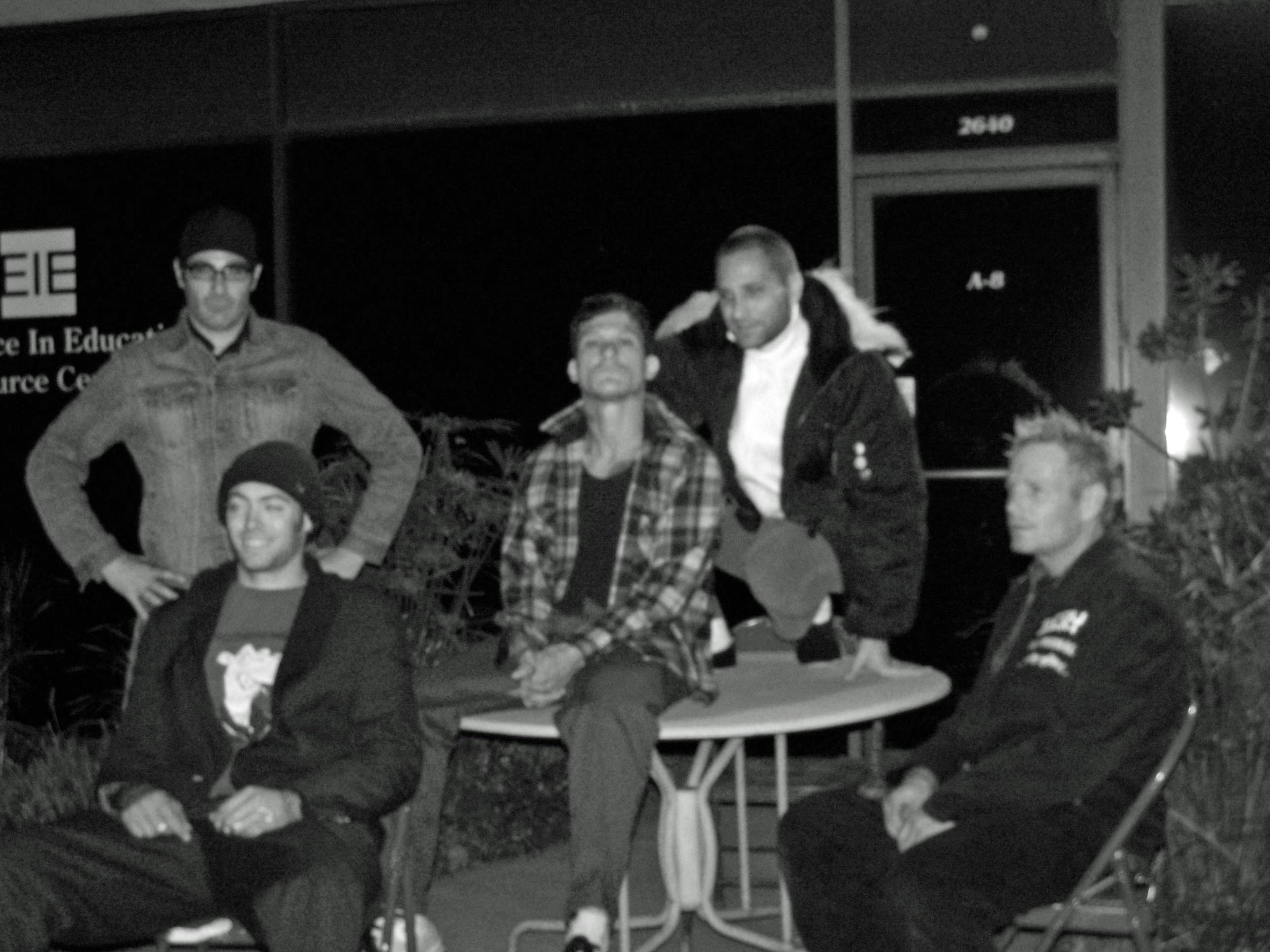
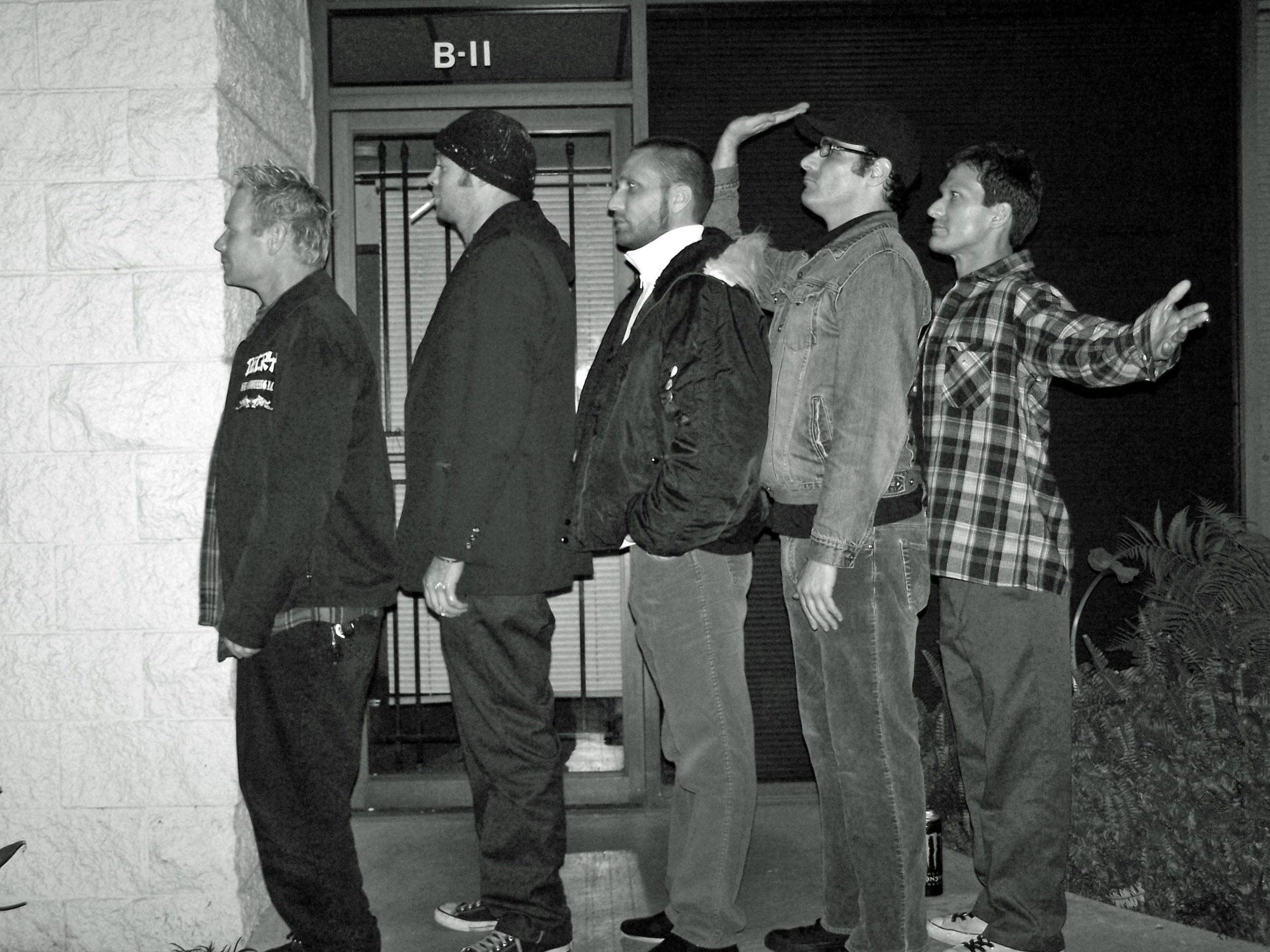
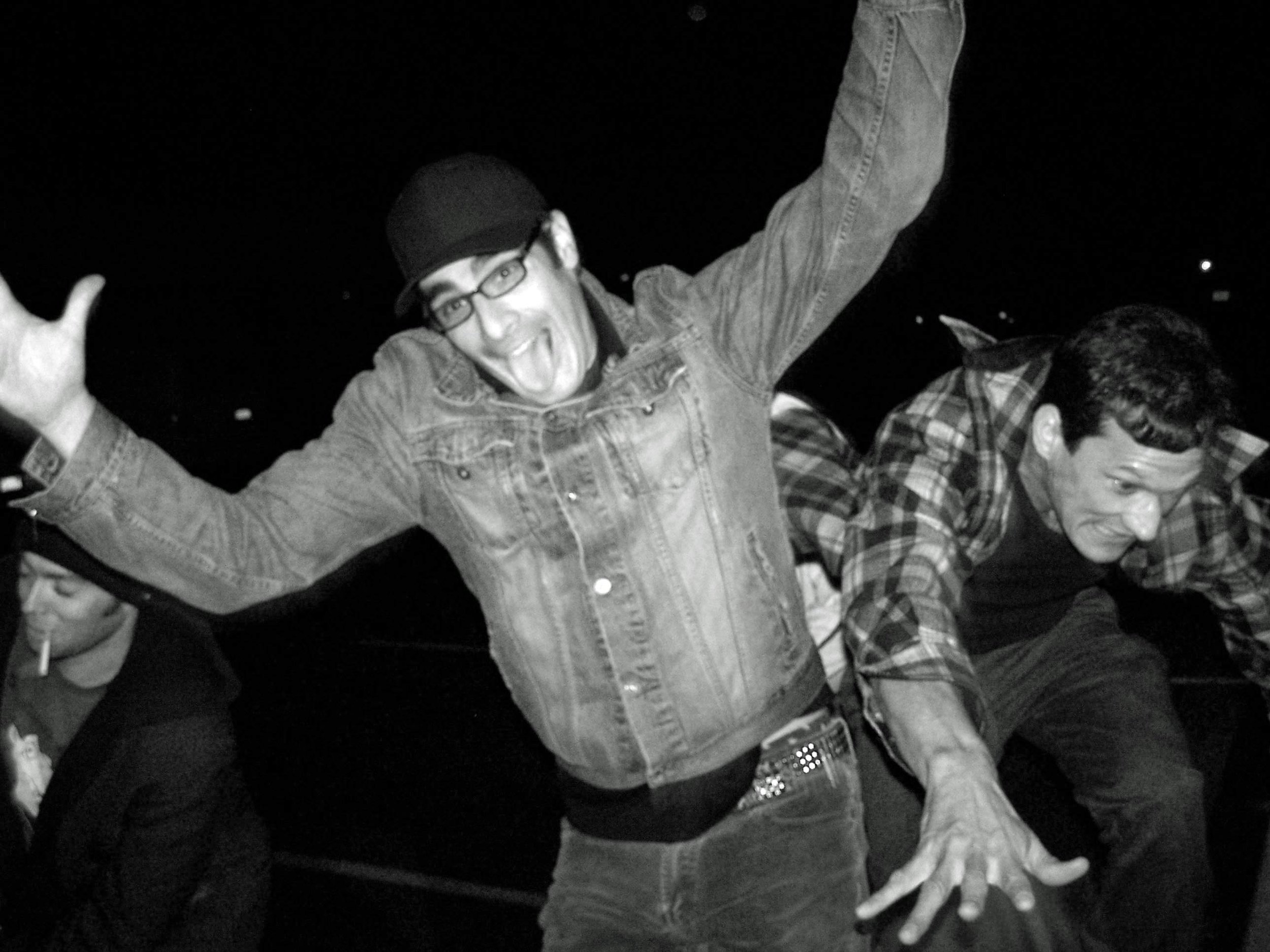
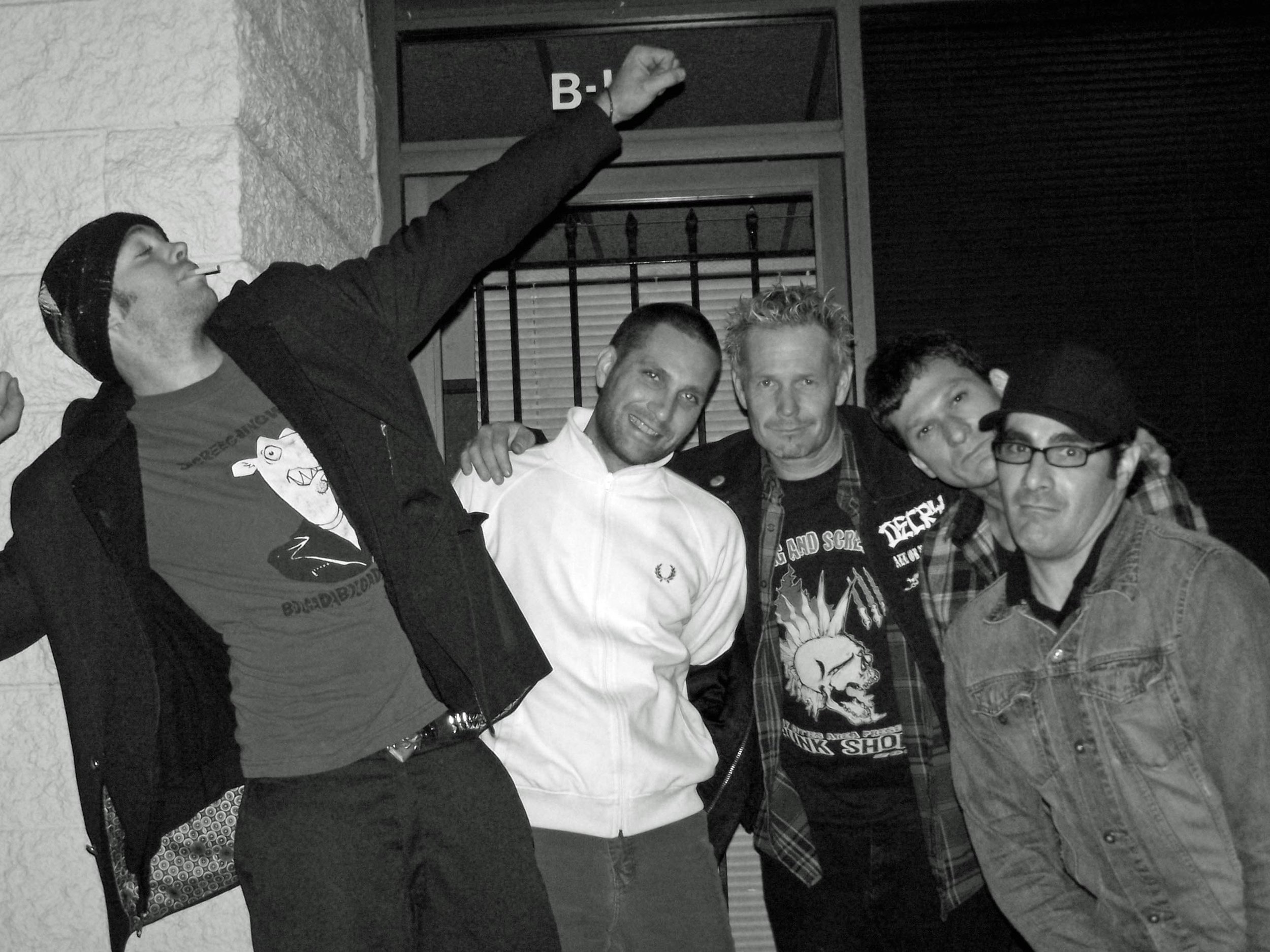
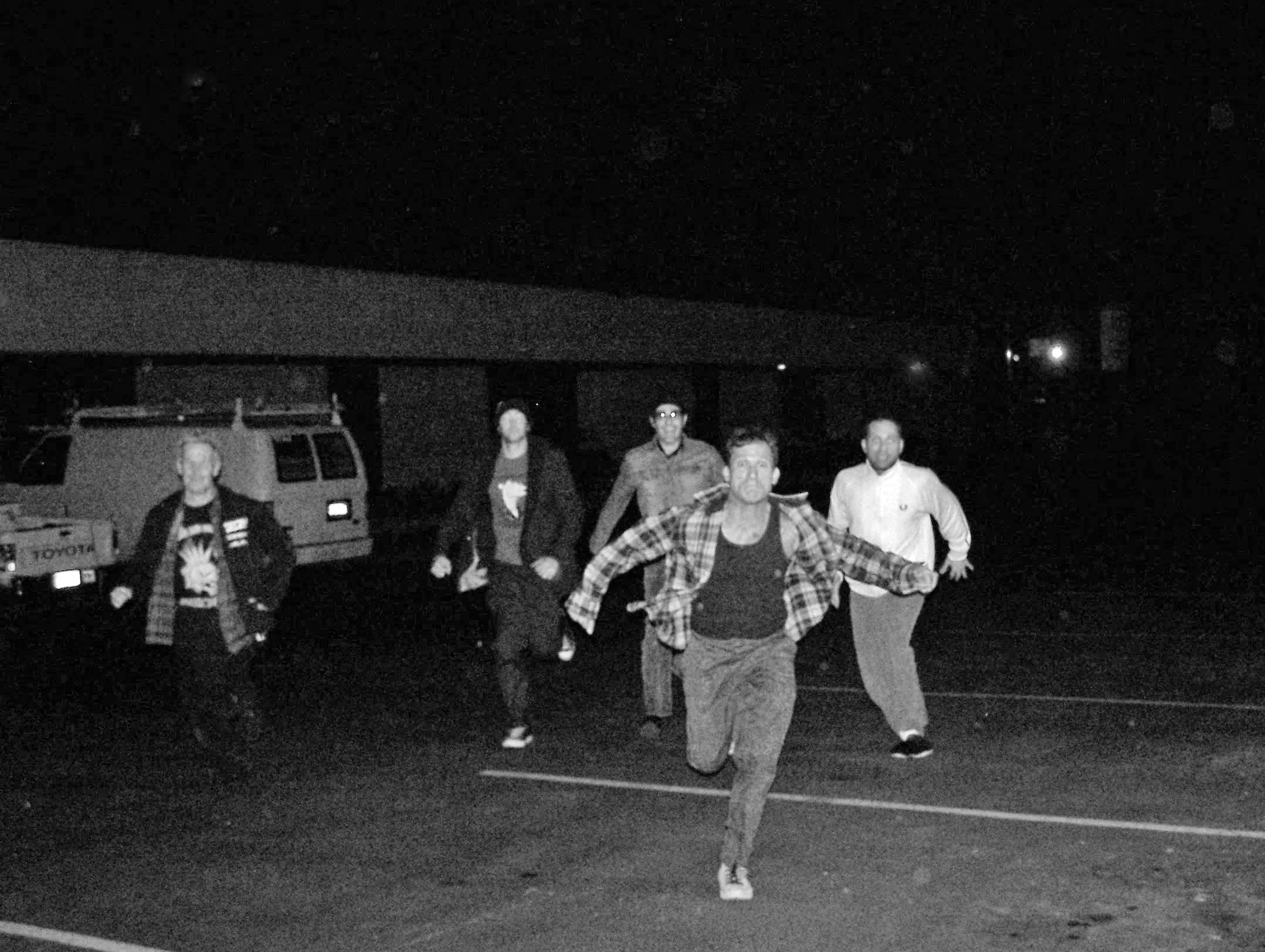
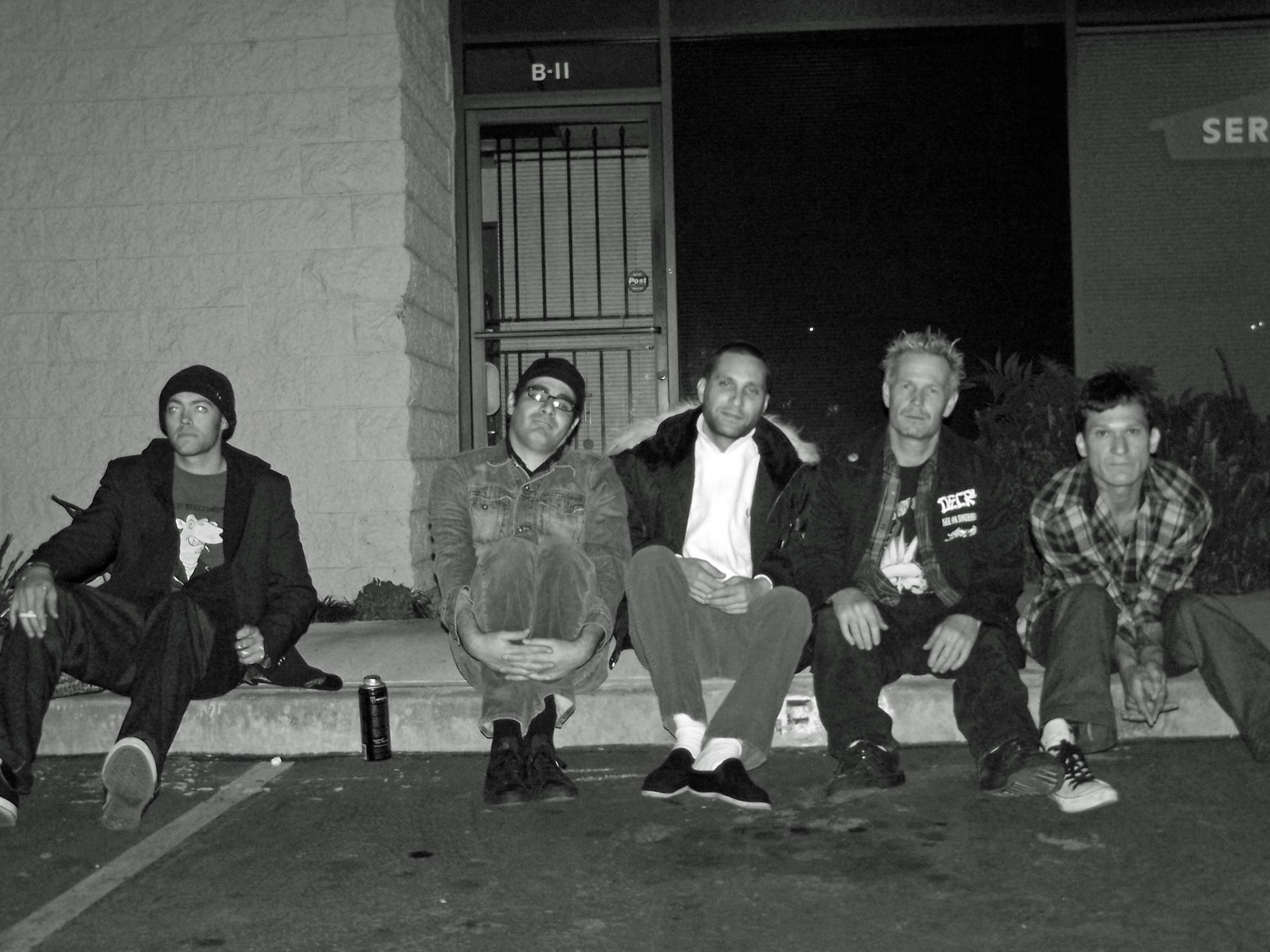
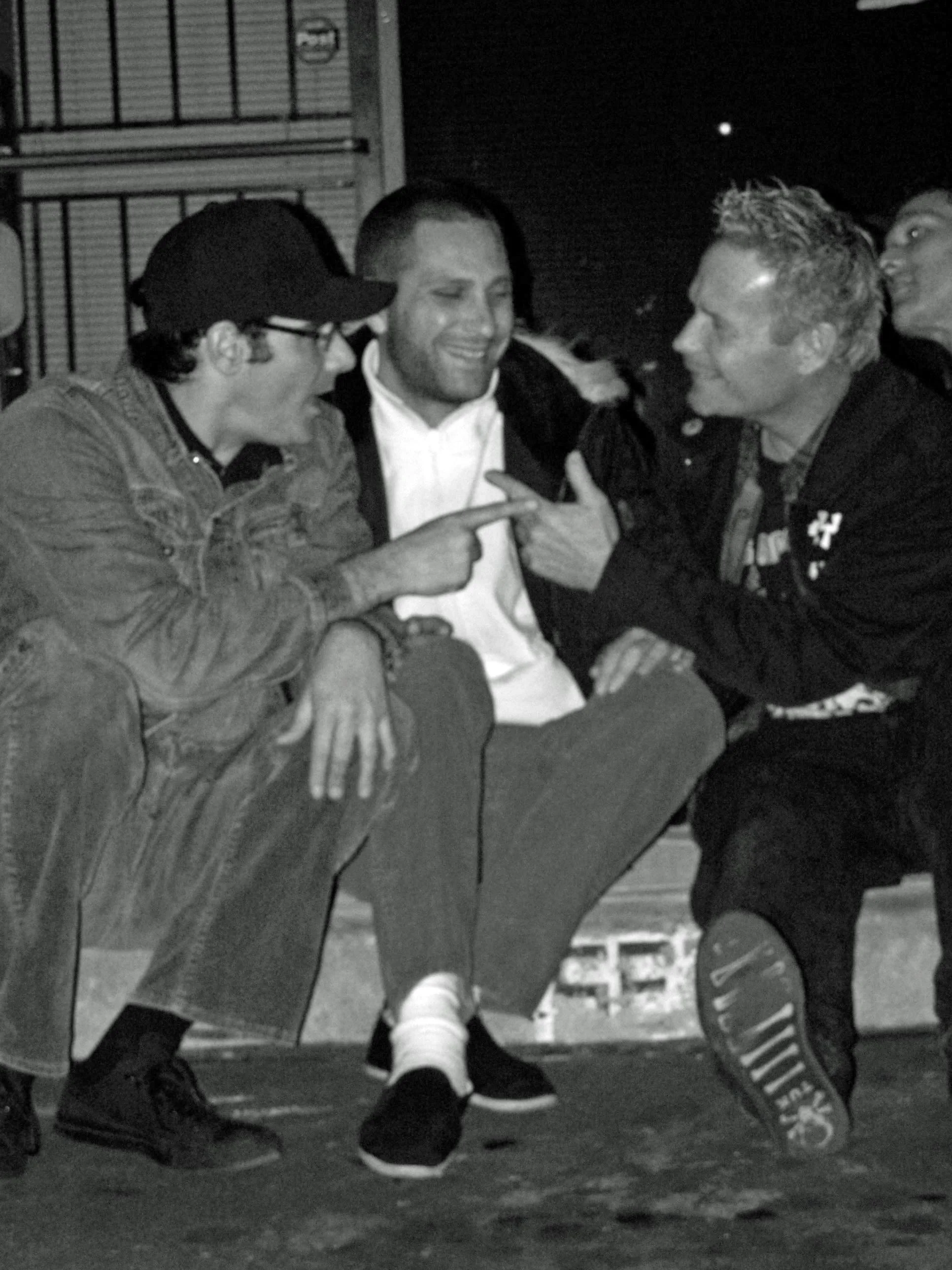
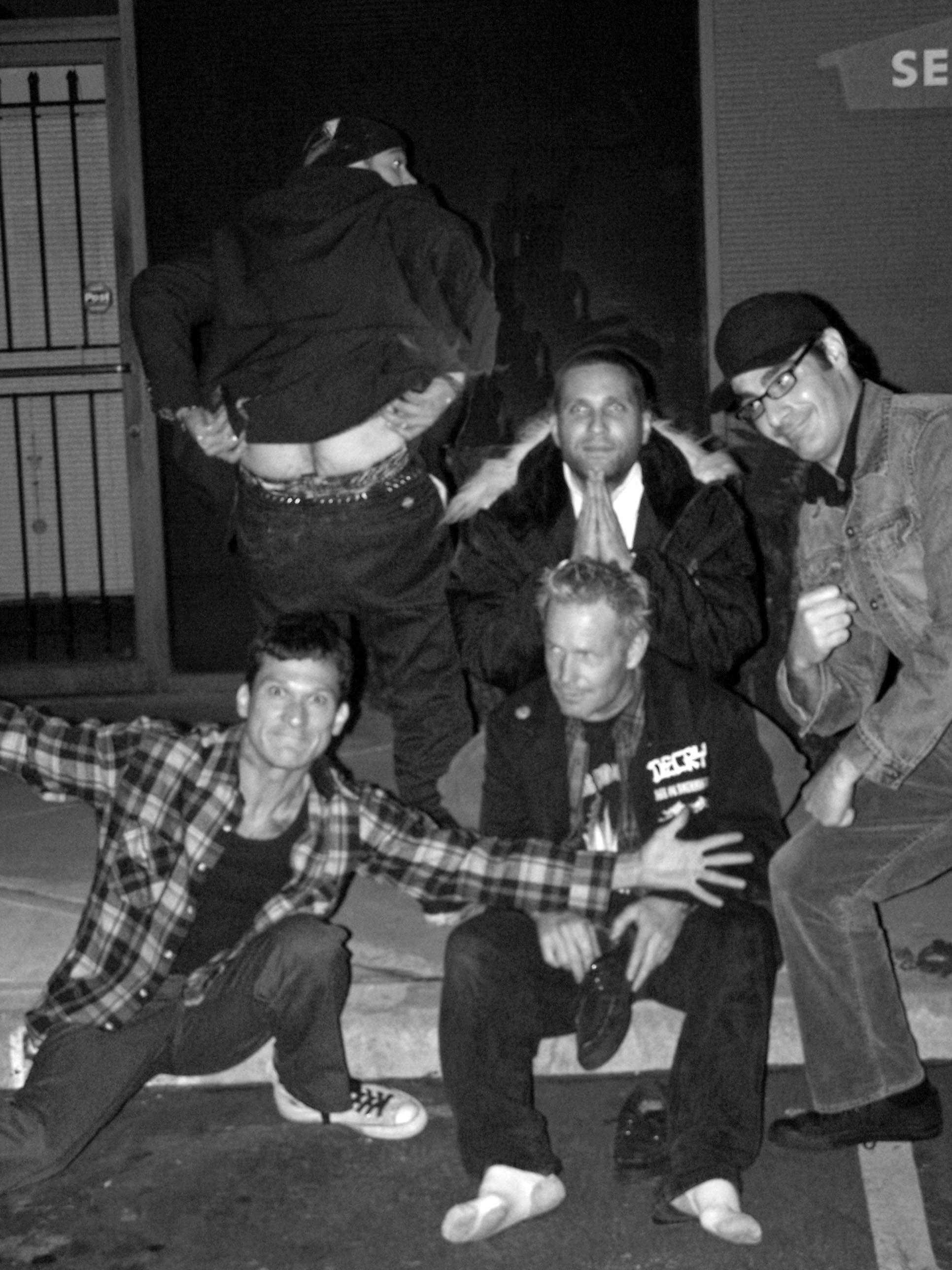
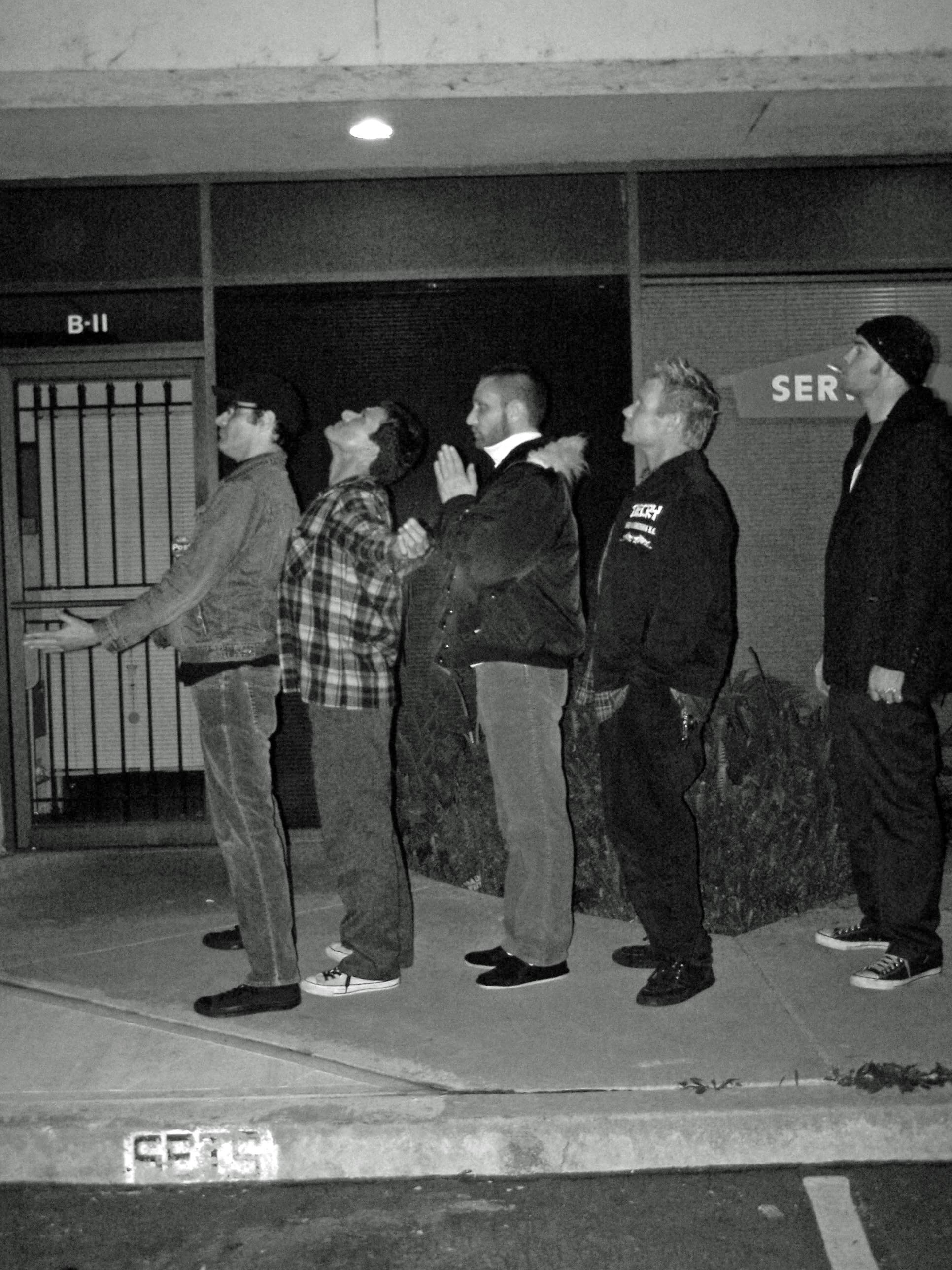
It’s way past 7:30 p.m. now outside of Big Bang Audio in Monrovia. It’s also only a couple of days away from Christmas, and it looks as though neither of the studio’s owners are going to be coming down to unlock the doors so that the members of Decry can practice.
Several cell phone calls later to the owners would only confirm that.
Gabriel, one of the band’s guitarists, was audibly angry that this was happening considering he drove from Glendale to get there.
Farrell, the singer and only original band member of Decry, said if he were 23 and drunk, this type of thing would have pissed him off and would have escalated to him knocking out a few windows in the surrounding area.
Instead, he sat and asked his bandmates what other studios were around the area.
For a band like Decry there’s so much history and modesty and love for the music behind it’s members, it’s hard to find a starting point to their story, but the studio where they waited that night seemed as good a place as any.
The band’s current lineup (which they hope to soon solidify) includes Farrell doing vocals, Gabriel on guitar, Sean Romin on guitar, Justin Polimeni on drums and Keith on bass (who was not a permanent member at the time of the interviews).
Decry started in 1982 with the original lineup consisting of Farrell, Andrew Vermuellen on guitar, Todd Muscat on bass and Rodney Dean on drums.
“When we started, it was for the love of punk rock,” Farrell said.
At that time, he liked going to the Starwood and seeing bands like the Simple Tones play.
“I was going, fuck! If this guy can do this...,” Farrell said. “I was really excited about seeing guys on this one-foot stage barely playing their instruments.”
Decry’s band name came from an answer to one of Vermuellen’s political science tests. The answer was decry, and so the band decry was born.
“Like a decry,” Farrell said, “making a statement when you see something unjust.”
The band went on to record a five-song 7” at Casbah Studio in Fullerton. They released the album on their own label, Insane Industries, with friend “O.” A year later, in 1984, they released their album “Falling” on Toxic Shock Records. “Flipside” magazine would later praise it as one of the best hardcore albums, and the song “Falling” reached number three on Rodney on the ROQ’s top 20 list.
They bought a van for $300 and toured after adding a second guitarist (Taz Rudd).
“1984 was when things changed musically,” Farrell said of Decry. “At this point, we all started doing heroin. There was a lot of control issues and turmoil in the 80s when we started doing the drugs. That was kind of like the beginning of a bad relationship. The drugs got in the way in the end.”
The rest of the band became angry after “Flipside” put Farrell’s picture on the cover and feathers were ruffled after some of the band decided that smiling was too much and not “punk rock enough.”
The year following “Falling,” their LP “Japanese” was released and they toured with Raw Power.
The old label Toxic Shock Records, which was renamed Toxic Ranch, states on the label’s Web site that after “Falling,” Decry “regressed into a glam rock outfit.” This idea of glam rock is all a matter of opinion, but played a role in why Farrell left.
Decry played its last show in 1986 when a friend of someone in the band (who was in a glam rock band) got up onstage and sang one of their songs.
“I said, ‘you know what? This is fucking Decry-not glam rock.’ I quit,” said Farrell of his decision to leave the band. “I moved to England, got strung out, married, went into detox, got out of heroin.”
“The bottom’s a good place,” Gabriel added saying that being that low in life has made them a lot more humble and given them a lot more perspective.
The current lineup of Decry would not arise until 2000 when Rick Collins called Farrell and said he wanted to start up Decry again. Farrell met Justin and Sean who both joined in 2000. Gabriel soon followed on guitar.
“I’m stoked to be in this band,” Gabriel said. “These guys are my fucking brothers now. I love these guys.”
This now weaves this band’s story back into the present-day Decry which toured again with Raw Power in 2001.
“We toured in one of those retarded kids’ school buses,” explained Sean of their mode of transportation.
On the bus, each person secretly had their own stash of pot and thought they were the only ones who had anything. So, when the police stopped them, each of them thought they were going to be exposed.
They didn’t get in any trouble and when they got off the bus, the police told them they had expected them to come off the bus wearing helmets (because of the kind of bus they were in).
Once this lineup is solidified with a permanent bassist, they want to tour Europe.
“I think as a whole, other people in the world appreciate the music,” said Justin who recently returned from Europe. “Generally speaking, it’s a slower pace; they enjoy things. They’ve adopted American music, like 60s soul music, that you can’t find here.”
“America has no other culture,” Gabriel added.
In addition to touring plans, they will be in the studio soon to record a 7” on Bad Idea Records. They also have their “Falling” album with additional songs on a CD sold at Radiation Records in Anaheim.
“Hopefully, we’ll make a million bucks, live on a hill and go back to our heathen ways,” said Gabriel smiling.
Other than that, their goals are modest. As Sean put it, they take things one day at a time. They just want to play music and when they play live, give people the same experience as what they hear on their stereos.
“I want to go onstage and give those motherfuckers what they hear on the album,” said Farrell. “That was a big thing: when you saw us live, you got the full effect.”
But the other, more important part of Decry’s “full effect” both then and now, was that their music is relatable; as people they are understandable; and as a band they were and are iconic in the way they play-mostly because they embody what punk is.
“Playing punk rock is the only thing I have total control of in my life without censorship or getting condemned by anyone,” said Farrell. “It’s like my addiction.”
“I’m not going to lie and say I have the same ideals as Jello Biafra when he started it (maybe politically I do),” said Sean. “There’s other ways to be punk rock. There’s other things going on in the world today. If you want to be punk rock, get involved with that stuff.”
They sing about reality without being obnoxious, which is what some people mistakenly think is punk.
“The tone of the band was so how that scene was,” said Gabriel who was present as an auditioning bassist during the band’s first interview. “Legitimate and working class-they just totally exemplify that.”
Legitimate is definitely what they are. They don’t brag about what they’ve done (and they’ve done a lot), and they certainly don’t boast they are any different from any other band out there-and that’s a rare kind of punk because it’s mixed with class.
